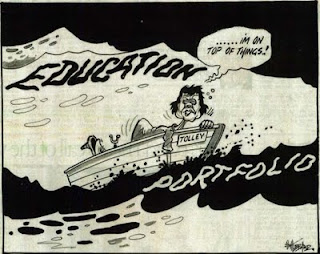Valuing our Ecosystem Services

The Royal Society of New Zealand has highlighted the importance of natural ecosystems as providers of services that benefit human wellbeing and suggest these need to be included in economic decision making. For Green supporters this is not a revolutionary idea but the Royal Society has articulated the concept well: "The natural economy provides us with many natural ‘goods and services’, but most are not considered in economic valuations, says a new paper released by the Royal Society of New Zealand. In its “Ecosystem Services” paper the Royal Society describes how ecosystem services or processes benefit human wellbeing and the need to include these in economic decision-making. It says when these ecosystem services are not recognised in the marketplace, it leads to decision-making failures. Examples of ecosystems services are forests reducing soil erosion, shellfish filtering water pollution, unfarmed areas improving natural pest control on ne















